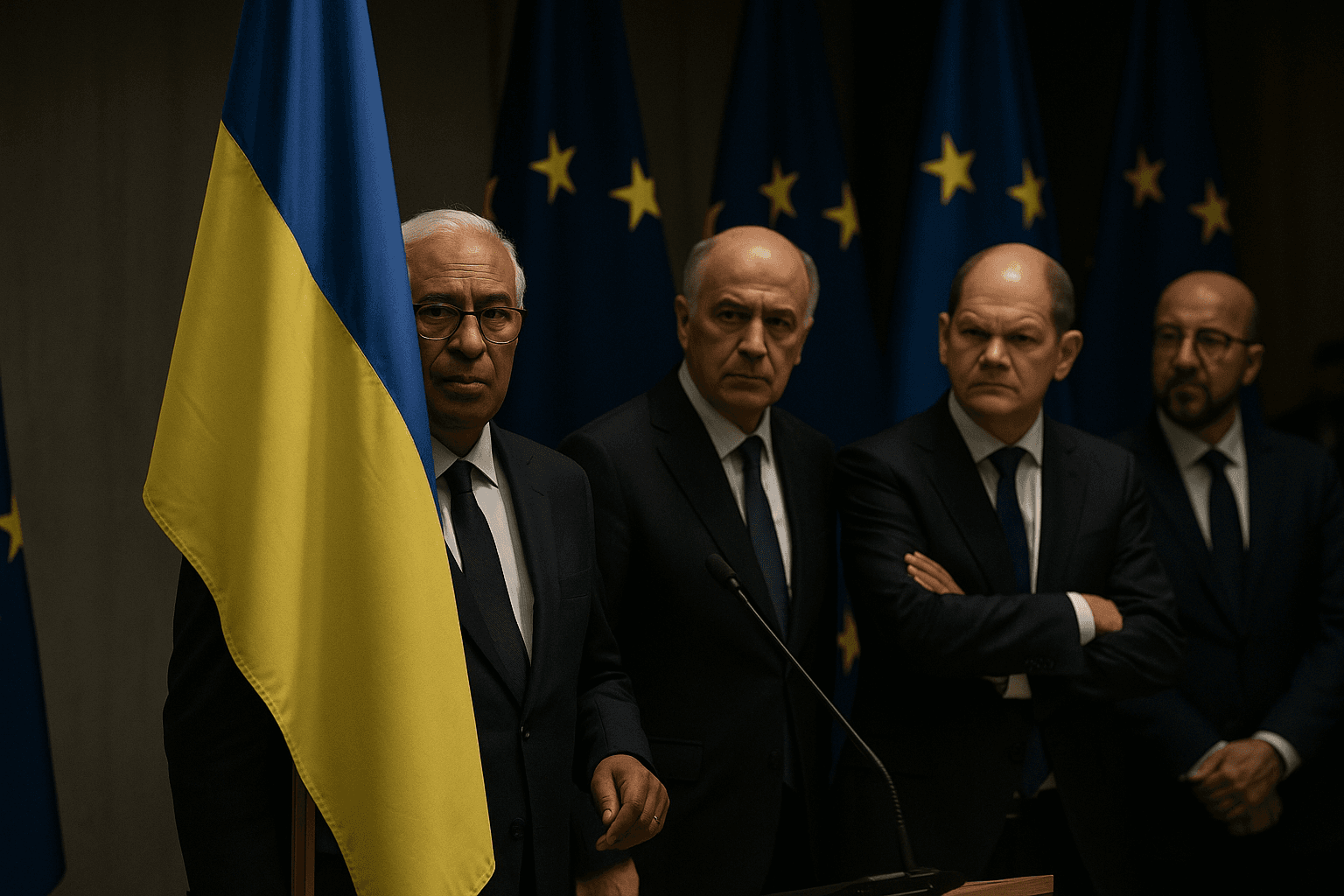EU Leaders Pledge Continued Funding and Arms for Ukraine, Stress Unity
European Council officials led by Antonio Costa pledged renewed financial and military backing for Ukraine at a summit side meeting on November 24, 2025, saying diplomatic progress must be matched by concrete support. The leaders also discussed controversial options for using frozen Russian assets to sustain Ukraine’s economy and defence, while acknowledging significant legal and political hurdles.

European Union leaders convened a side meeting on November 24, 2025, and used public remarks to reaffirm a collective commitment to sustain Ukraine’s war effort as parallel peace talks showed tentative momentum. Led by European Council President Antonio Costa, officials emphasized that any advance in negotiations needs to be underpinned by continued shipments of military equipment and financial assistance to keep Kyiv solvent and able to bargain from a position of strength.
The leaders outlined plans to maintain existing aid pipelines and to explore mechanisms to fund Ukraine’s reconstruction and wartime needs. Among the options discussed was the potential use of assets frozen after Russia’s 2022 invasion, a proposal that has reemerged in policy debates across capitals. Officials acknowledged that reassigning frozen assets would confront legal constraints at the national and international level, plus political resistance from member states concerned about due process and diplomatic fallout.
The meeting followed international discussions aimed at framing a negotiated settlement that could end large scale hostilities, but council participants stressed that diplomacy cannot proceed in a vacuum. Continued deliveries of materiel and budgetary support were presented as essential for keeping Ukraine’s economy running through a period of uncertainty, preserving public services and maintaining the logistical capacity to sustain military operations if talks falter.
Policy officials at the summit focused on practical tools to bridge financing needs in the months ahead, including direct budgetary transfers, credit lines, and expedited procurement channels for ammunition and air defence systems. Leaders also flagged the importance of coordinating sanctions enforcement to prevent circumvention that would undermine both pressure on Moscow and market predictability for European firms that supply defence and dual use goods.

Economically, prolonged support carries clear tradeoffs. Sustaining a high tempo of military assistance will put pressure on national budgets and on the European Defence Industrial base, increasing demand for munitions and high tech components. Defence contractors should expect continued orders, while governments will face choices about reprioritizing spending or tapping contingency funds. Moves toward using frozen assets as a funding source would create a precedent in sovereign asset treatment with implications for investor confidence and for how international law treats state property seized in the wake of sanctions.
Market implications are already evident in investor attention to defence supply chains, inflationary risks for specific commodity prices used in weapons production, and sovereign funding decisions that could reshape fiscal planning across the bloc. The EU’s capacity to translate political unity into predictable, timely deliveries will determine whether diplomatic momentum stabilizes into a durable settlement or stalls under the strain of operational shortages.
Looking ahead, the critical variables are the pace of negotiations, legal determinations on frozen assets, and how quickly the EU can operationalize financing channels without splintering consensus among member states. The council’s public unity signal on November 24 sends a clear message that Europe intends to remain a central backer of Ukraine’s military and economic resilience while seeking a negotiated end to the conflict.


